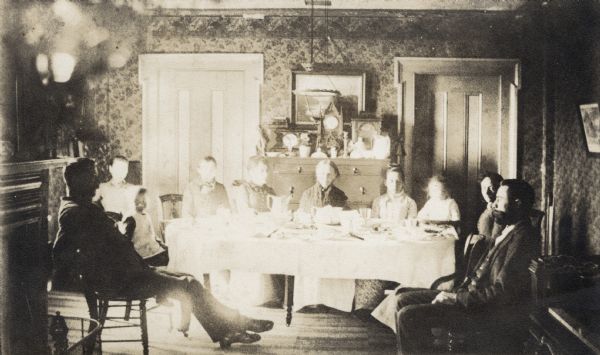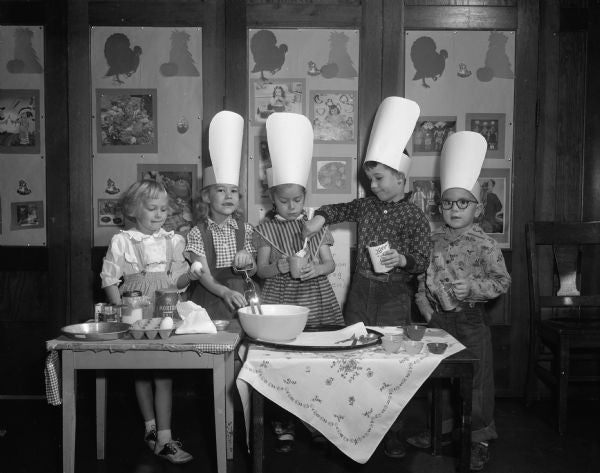
Photo: Wisconsin Historical Images.
In the image to the right, a young girl takes dressing up for the holidays to a new level with this tinsel- and ornament-bedecked dress.
Jesuit priest, the Rev. Claude Allouez, celebrated what was perhaps the first Christmas in Wisconsin on the shores of Lake Superior in 1665. He had set out from Montreal in August in the company of 400 Native Americans returning home to Wisconsin. He landed near where the city of Ashland is today and built “a little chapel of bark.” Allouez didn’t say what he did on Christmas, but it was probably praying and saying Mass rather than dressing as a Christmas tree.
News with a little more humanity
WPR’s “Wisconsin Today” newsletter keeps you connected to the state you love without feeling overwhelmed. No paywall. No agenda. No corporate filter.
Holiday cooking disasters have a long history in Wisconsin as well. In 1803, British trader Capt. Thomas Anderson attempted a Christmas feast for his Native American neighbors. He captured “the fattest raccoon” he could find – 32 pounds – and set to work stuffing it with venison, onions, and seasonings.
“No coonship’s body, I am sure,” he wrote, “was never so cram-full before.”
He set the stuffed raccoon by the fire intending to roast it in the morning but woke up to find it “putrid and stinking.” Mortified, Anderson went without dinner and got laughed at by his “half-famished friends.”
Despite this cooking disaster, Anderson was at it again in 1811, preparing a “sea pie” of muskrat for a Christmas feast. He made the crust and fit it in the bottom of a bake-kettle; spread a layer of muskrat meat, pepper, and salt; and continued alternating crust and meat until the kettle was full.
“But pepper and salt did not save it, nor savory crust convert muskrat into relishable food,” Anderson lamented. “On opening the pie, so sickening was the effluvia emanating from it, that all were glad to rush to the door for fresh air.”
Maybe Anderson should have tried the tree outfit instead. May your holiday feast be more relishable.
Wisconsin Public Radio, © Copyright 2025, Board of Regents of the University of Wisconsin System and Wisconsin Educational Communications Board.



